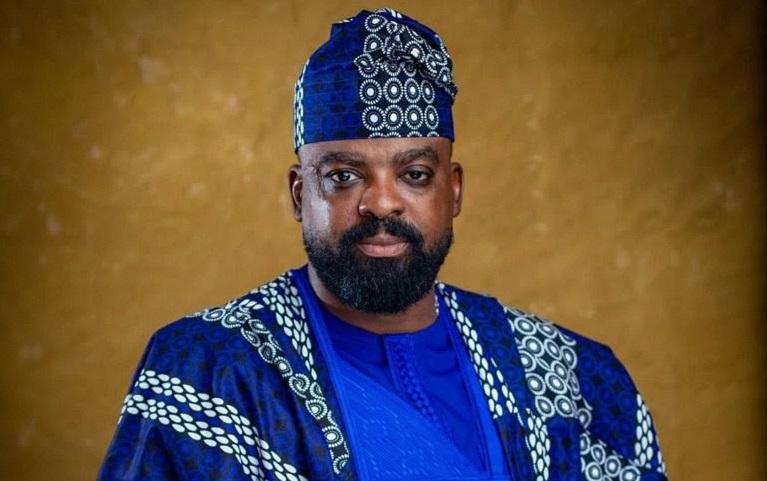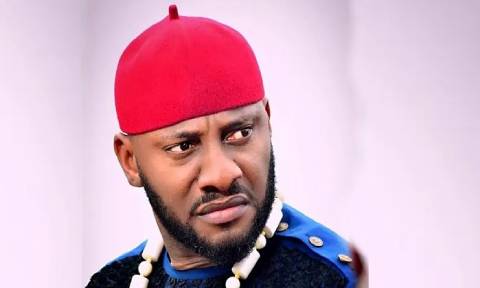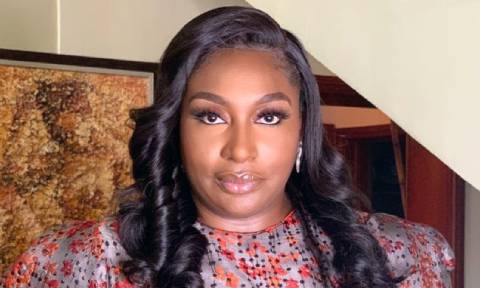
IN the wake of the reversal of fortunes that has hit Nollywood, many moviemakers have begun to look inward and really dig deep into their reservoir of creativity to give new meaning and direction to their art as filmmakers. Recently, Lancelot Oduwa Imasuen returned from the US, where he premiered his latest Edo language film, Ebuwa, in four cities. Imasuen has been a major voice in Nigeria’s Nollywood. Fondly called the Gov’nor, Imasuen’s movies have received critical acclaim within and outside the country. Now the Edo-born filmmaker has turned his attention homeward in an effort to give voice to a minority language being threatened with extinction in a global arena. He contends that language films hold the future for Nollywood, and that it is from this area that Nollywood’s biggest break at the international movies scene will come. His reason: “It is in language films that Nigeria’s indigenous cultures will most explicitly find expression and survival in a globalised world that negates indigenous cultures.” Imasuen also finds himself strategically placed to revive the arts and culture of Edo, a unique civilisation that has been neglected either through ignorance or a lack of direction as to what to do with the immense artistic and cultural products that history has endowed it with. In this interview, Imasuen chronicles his tour of the US and Canada and the regeneration his foray into Edo Language film will have on the nation’s artistic and cultural life.
WHAT inspired the indigenous language film project, which recently took you to the US?
Of late, I began to re-examine my role as a filmmaker as it applies to society. Am I just going to continue merely entertaining people? What legacy am I going to leave as a social reformer? My instinct told me that one of the greatest languages on earth is the Benin Language. As a prominent filmmaker from that place, it became very clear to me that the language is being eroded and fast going extinct. So, as part of my social responsibility as a filmmaker, and as a way of giving back to society, I now decided to embark on producing quality language movies in Edo Language.
I had two things in mind when I started. Having traveled extensively around the world, I discovered that there seems to be a major gap between the Nigerians that left here in quest of greener pastures abroad and the children they bore while there, that those children cannot speak the Edo Language. And, it isn’t that they are not interested per se; but that the environment they find themselves and the way of life over there, negate our culture. Also, after a series of investigations and research, I discovered that through a movie medium, a lot of them could begin to relate with the language.
However, one thing came out clear – such movies must be worth their while. It must be good quality movie subtitled in English. The testimonies I have gotten since I embarked on this project have been tremendous. A lady told me in Atlanta that for 28 years she has not been home in Nigeria and that her only link was through the movies. She thanked me profusely during one of the premieres. And the quality meets up with their taste. So, it’s a whole new thing that I have started.
How many movies do you have in this project?
We have Otere, which started the celebration and sustenance of the Edo Language initiative; we have Ewhowho, Adaghieva, Agbawho and Ikwe Meeting, which was very successful in terms of marketing acceptance. And, recently there was the big project called Ebuwa, which I toured four cities in the US with. We had a huge premiere in Benin City on May 17, 2008; and from then to the last BOBTV in Abuja. Edo politicians and business people were there. For me that was a major thing, moving the language from the seven Local Government Areas where it’s being spoken in Edo State to being given an international outlook. We were in Boston, New York, Atlanta and Toronto in Canada to premiere Ebuwa.
What was the experience like holding a premiere for a non-English language film in America?
I was on a radio in Atlanta. When the lines were opened, I was amazed at the people who called in. 85 per cent were Americans showing massive interest in Nollywood. But nobody is ready to invest in Nollywood here even as it is loved outside this country. As a result, there is massive exploitation of Nigerian movies in Canada and the US. And we have embassies over there to protect the rights of Nigerians. In New York, I saw copies of my movies in an Indian man’s shop. In downtown Brooklyn you’ll see Nigerian movies being sold in car boots by Chinese, Indians, Lebanese, Sudanese and Jamaicans; the bulk of the money they repatriate back home comes from Nigerian movies. It’s their major source of income. And nothing gets to us, the makers of these products. When we premiered Ebuwa in the US, over a thousand copies were sold out. You can imagine what it would have been if massive publicity was given to the show.
You seem to be a lone voice in the revival of indigenous language films. How far do you think you can go in this direction?
There is no end to it. I’m bequeathing a legacy. A lot of people are getting motivated. Jenifa just won the best actress award at AMAA; that’s a major plus to language film exponents. Mark you, it’s the language films that will give Nigeria a major international acceptance more than English movies. Right now, I’ve taken up the campaign to give indigenous language films the international consciousness, with a lot of music and cultural input as it concerns my Edo people. I’m sure a lot of people will begin to look homewards because there’s this sense of belonging, a sense of ‘our thing’ approach to it. And the embrace I’ve got from my people has been so overwhelming. My movie Ikwe Meeting has sold more than any English movie I have made.
What support have you received from your people, from the Edo State government, from the Oba’s Palace in this campaign to bring Edo Language to the consciousness of Edos in the Diaspora?
You see, when you approach them, there’s always this thinking that you want money. It’s better for people to genuinely see what you’re doing and appreciate it. Like Lucky Imaseun, the former deputy governor, did. He called me to say we’re proud of what you’re doing. Well-meaning Edo people have been showing love and appreciation for what I’m doing; common people in the streets appreciate it.
But there has not been any form of institutional support or call for this language regeneration campaign or project. I’ve received awards from several bodies, yes; but nothing more.
Truly, I want to be called an Oscar nomination for what I’m doing. I want international organisations to recognise what I’m doing. We’re making people to be aware that Edo is a major language. I want to prove that there are two great kingdoms in the world – the United Kingdom and Benin Kingdom. And that it’s just as well a sweet city to call – New York City, Benin City!
Look at history. Benin is a major cradle of black civilisation but the people don’t seem to be aware of the peculiar thing that God has given them and the position of art and culture. Our own oil in Benin City and among the Edos is art and culture and craft. So, Benin ought to be a hotbed as far as tourism is concerned. Go to Igun Street; these are things we want to create awareness about. As far back as the 1700s, the Binis had started trade engagements with the Portugese; Bini had an ambassador over there. Look at Oba Ovoranwen Nogbaisi; he’s easily forgotten. We are talking about civilisations. I’m very fortunate to have come from that place and people are not aware of these things as being important or maybe they don’t just care.
Are you saying that your Edo Language movies will help to rebrand the Benin Kingdom, culturally?
Yes; do you know how much people pay to be conducted round Buckingham Palace in London? Do you know the funds that accrue to those people when you just come to see that place? We need a cultural village. Ughotor, where the British soldiers came through during the Benin Massacre, ought to be different by now attracting people to see it as a huge cultural and tourism destination.
So, it’s beyond just making films what we want to do with the Edo indigenous Language films. I want to use this as a platform to diversify attention, to raise the consciousness about what Edo has to offer the world and why the world must come to Edo. Edo people must be made to understand that until they invest heavily in arts and culture, nothing will happen there. Look at what Cross River State has done. Benin has more sights worth visiting than any other place in Nigeria. I stand to be corrected on that. This is not because I’m from there but because of what history has deposited in Edo. This is our oil, our own natural resources – the arts and culture in Edo land. It must be taken, modernised, packaged and exported to the world to buy. That’s the way the world works now.
If you take any four bronze casters from Edo to anywhere in the world, they’ll excel and create excitement with their works. Where else in the world is such art practised? They will be looking at you like this and cast you instantly in bronze. And God has empowered me intellectually and creatively by way of inspiration to rejuvenate Benin culture and let people know that we must take advantage of our culture before others do. Then it will be too late.
How can piracy of Nigerian movies abroad be tackled in your experience as a much-traveled filmmaker?
Nigeria has bilateral relations and agreements with the US, Canada, Britain and other countries. When the Nigerian government begins to take the movie industry more seriously like Prof. Dora Akunyili has started to do by involving Nollywood as image-maker in rebranding Nigeria, and they also know that it’s taxable, like Lagos is doing, then the better for all of us. You can’t give what you don’t have.
When the right investment comes into Nollywood, things will change. With Nigerian ambassadors in those countries stirring up the relevant ministries and agencies in those countries to begin to look into piracy, things will get better. First from here, any movie that is illegally leaving this country that is not stamped or registered, and that is not being taken by the filmmaker, should not be allowed to leave this country at the airport. Everything must be searched the way they search to get cocaine! Such things are possible. All our borders must be under strict surveillance. All the 20-in-one DVDs come through the borders. It’s just for some people to know that this is our national wealth that is being eroded, which would have been used to develop the country.
As part of the fallout from my movie premiere in the US and Canada, we are trying to work with bodies over there to get Nigerian films into cinemas. You know, we have belittled ourselves for too long; why is it that we can’t premiere Nigerian movies in the US? It’s possible from my findings and experience. My experiment with Ebuwa showed that it’s possible. In Atlanta people were standing to see the movie. People were rushing to sign autographs, and I didn’t go with any star. I was the only one.
Also, we’re trying to work a partnership with Billy Osawaru Foundation in Atlanta. We will be training filmmakers abroad through scholarships, people who will take over from us. More so, I want to bring back school drama contest from which I’m a product in the old Bendel State.



















